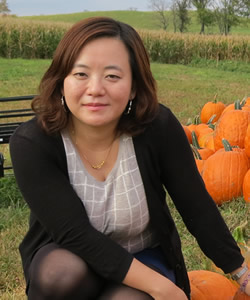Liberal Education in a Global Era: American and Chinese Perspectives
Monday, March 4, 2013
5:00 a.m. EST
Education that promotes both knowledge and skills and personal and social responsibility is increasingly critical for professional success and effective citizenship in a complex, globalizing world. The ideals that inform liberal education, including self-reflection, ethical judgment, and engagement with difference, have been most fully institutionalized in North American and European colleges and universities, but they also resonate among educators in China and East Asia and in other parts of the world.
This one-day workshop, organized by Georgetown University and hosted by Fudan University in Shanghai, brought together delegations from both universities and other China-based scholars and educators to discuss the future of liberal education in a global era and areas for institutional collaboration.
The workshop was sponsored by Georgetown’s Global Liberal Education Initiative, a project of the Office of the President and the Office of the Provost.
SCHEDULE
Session One: Conceptualizing Liberal Education in a Global Era | Chaired by Tom Banchoff (Georgetown) and Ren Junfeng (Fudan)
Georgetown University
The workshop was sponsored by Georgetown’s Global Liberal Education Initiative, a project of the Office of the President and the Office of the Provost.
SCHEDULE
Session One: Conceptualizing Liberal Education in a Global Era | Chaired by Tom Banchoff (Georgetown) and Ren Junfeng (Fudan)
- How do diverse philosophical and religious traditions inform ideals of liberal education in the United States and China? Can dialogue across Christianity, Confucianism, and other traditions deepen our approach to educating global citizens in the twenty-first century?
- What are the main goals of liberal or general education—broad knowledge, analytical skills, or particular dispositions? How should the emergence of new global economic, social, and political challenges influence the direction of liberal education in practice?
- How can one ensure the depth and breadth of liberal education courses across the curriculum? What are best practices when it comes to collaboration across disciplines in teaching and designing such courses?
- How might new forms of collaboration between American and Chinese institutions advance the practice of liberal education in a global area? How can new pedagogical approaches and communication technologies contribute to such collaboration?
Georgetown University
- Tom Banchoff, Professor of Government and Foreign Service, and Director, Berkley Center for Religion, Peace, and World Affairs
- Randall Bass, Professor of English, Associate Provost, and Director, Center for New Designs in Learning and Scholarship
- Eitan Paul, Program Associate, Global Liberal Education Initiative
- Huang Ping, Postdoctoral Fellow, Berkley Center for Religion, Peace, and World Affairs, and Assistant Professor, School of International and Public Affairs, Shanghai Jiao Tong University
- Liu Pei, Liaison Office Director in Shanghai
- Bai Tongdong, Professor of Philosophy
- Ren Junfeng, Associate Professor of Political Science
- Wang Xinsheng, Professor of Philosophy
- Wang Ying, Deputy Dean of Academic Affairs
- Zhang Shuangli, Associate Professor of Philosophy
- Daniel Bell, Professor of Philosophy, Tsinghua University
- Mary Bullock, Executive Vice Chancellor, Duke Kunshan University
- Wang Yingjie, Professor, Centre for Comparative Education, Beijing Normal University
Discover similar content through these related topics and regions.
Participants
Opens in a new window



